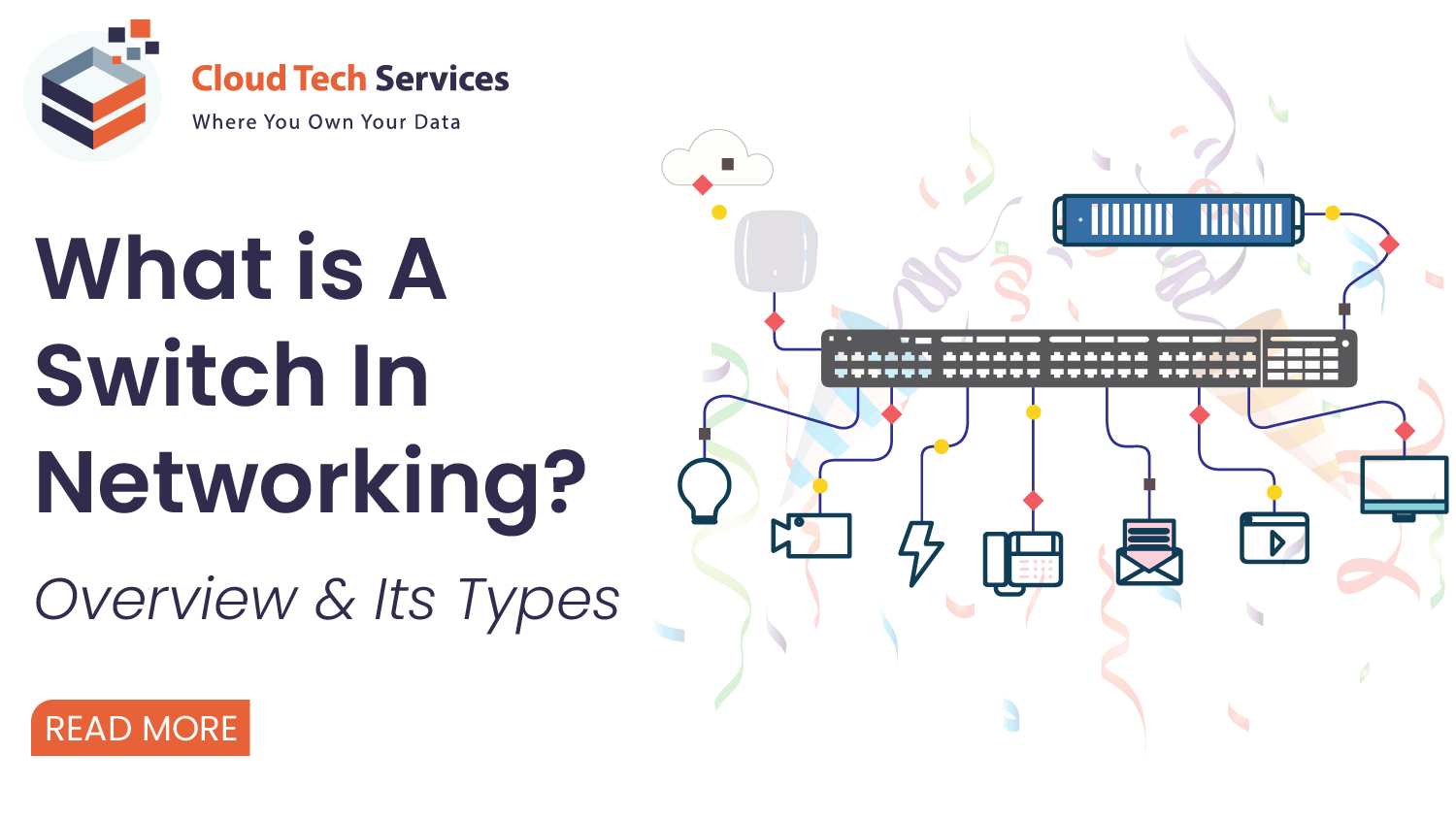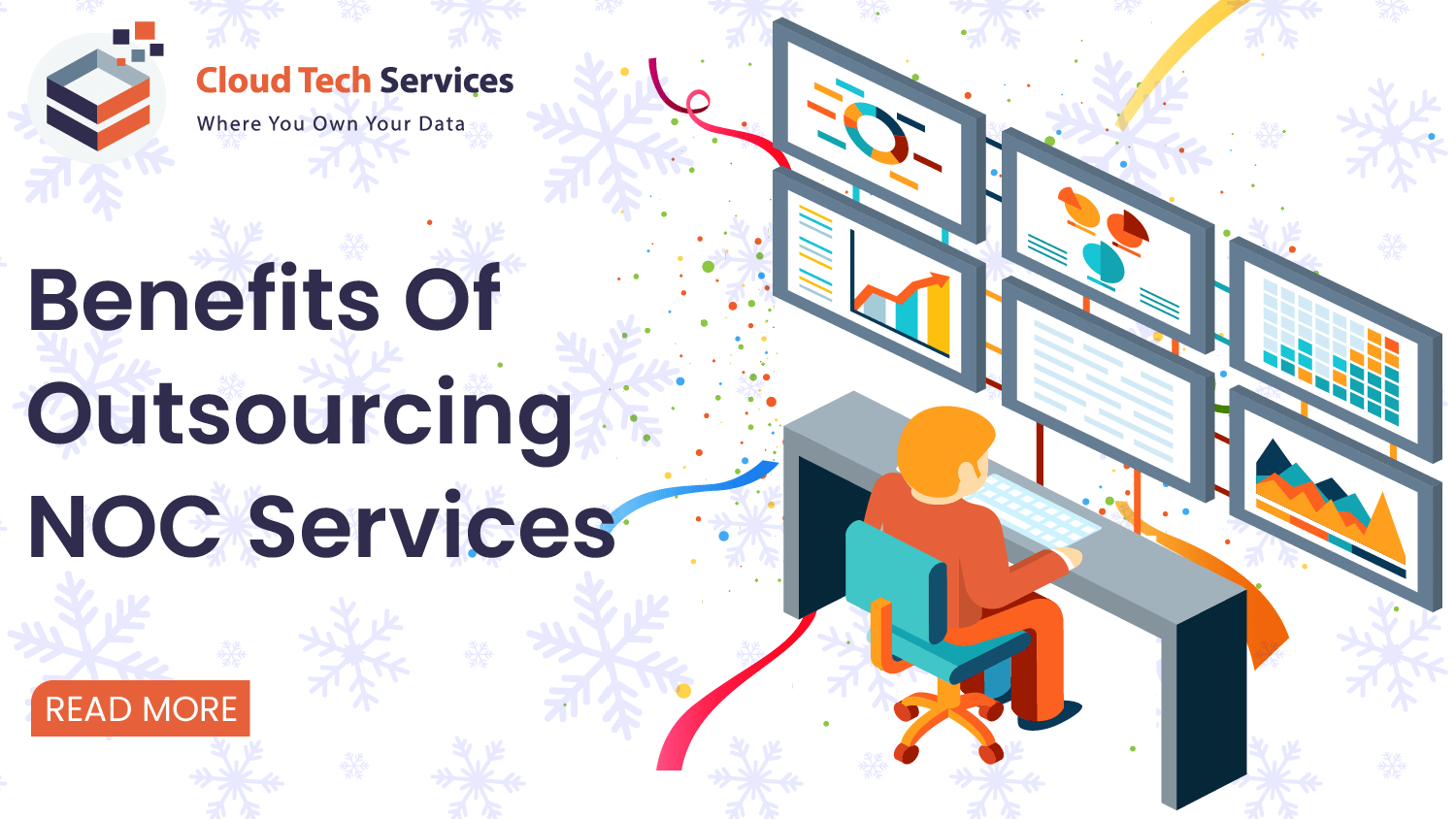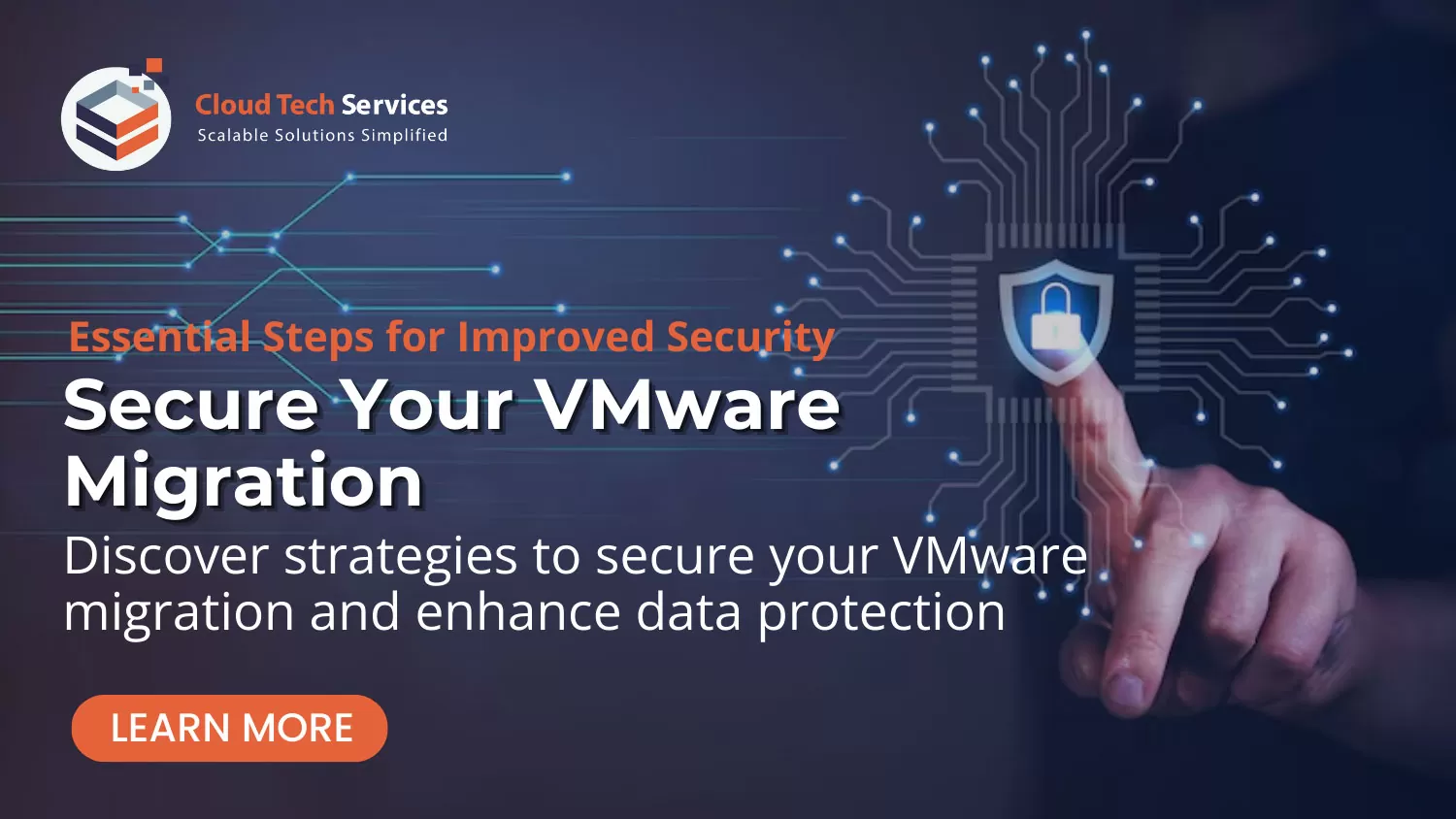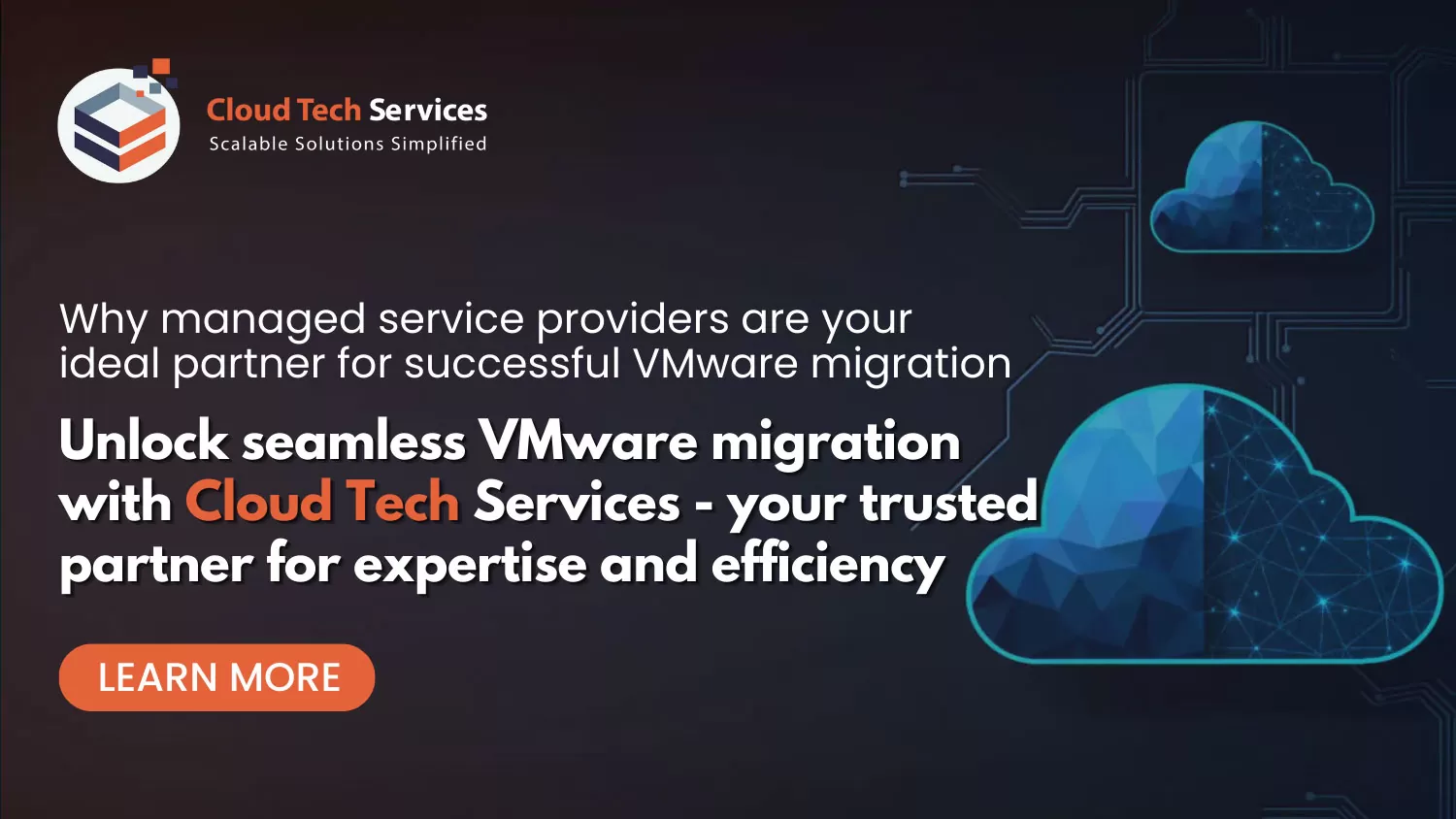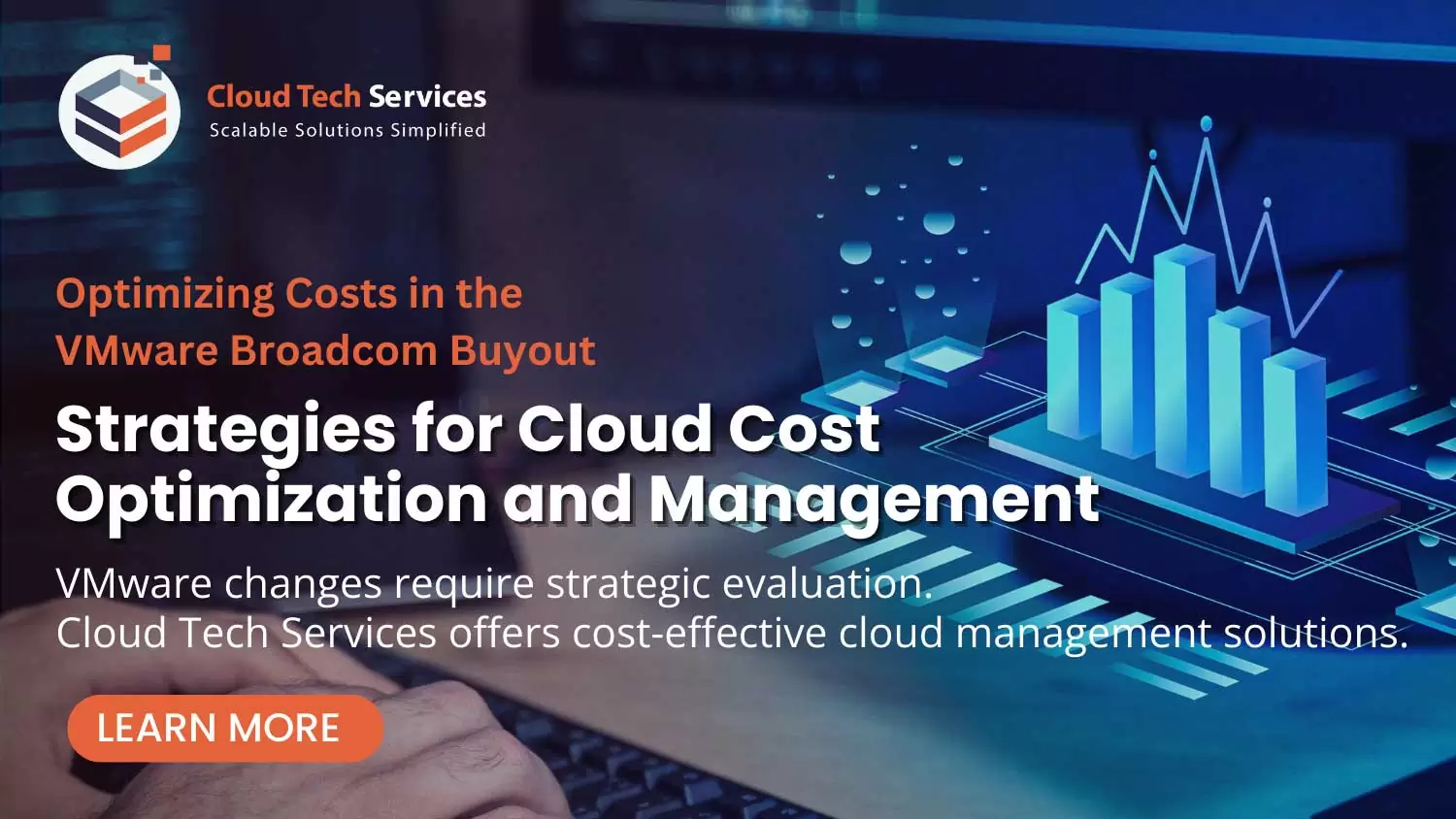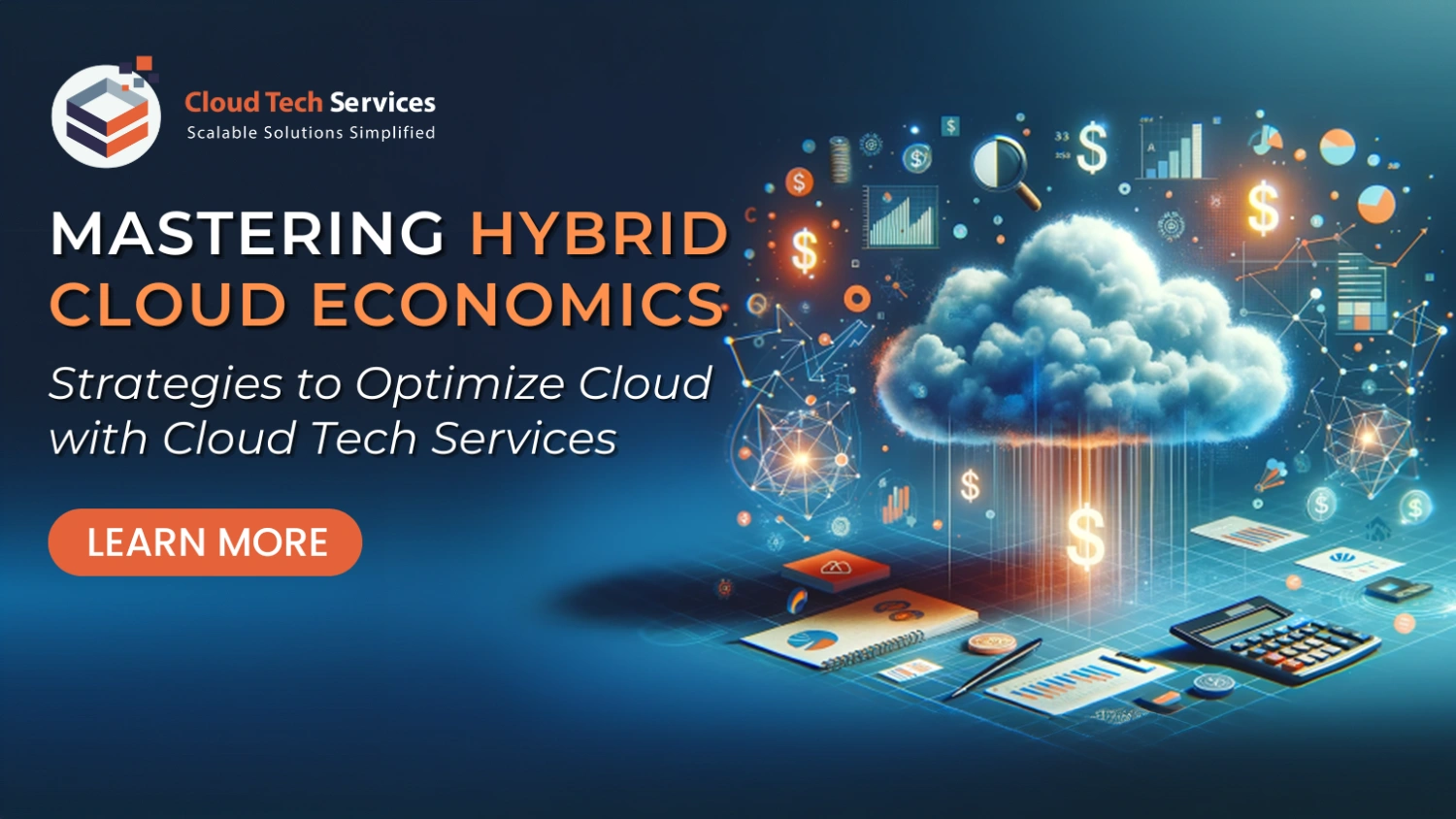Mastering Hybrid Cloud Economics – Strategies to Optimize Cloud with Cloud Tech Services
Are you struggling to manage the complexity and cost of your hybrid cloud environment?
Did you know that 38% of organizations are spending more than 30% of their cloud spend? (The Financial Express, does your 2024 IT budget account for cloud waste?).
The hybrid cloud model offers enterprises unparalleled capacity, scalability and cost efficiencies by combining the benefits of public and private clouds but managing costs in such a scenario can be challenging. Let’s explore effective strategies for maximizing cloud economics and how Cloud Tech Services’ managed hybrid cloud economics helps you maximize your ROI and streamline resource utilization.
What is Hybrid Cloud Economics?
Hybrid cloud economics involves the financial management of a hybrid cloud environment, balancing the cost of on-premises infrastructure with the expenses associated with public cloud services. Businesses must consider operational costs, scalability, resource allocation, and the complexity of managing a diverse environment.
Challenges in Hybrid Cloud Economics
The complexity of the hybrid cloud environment means many businesses must deal with unexpected costs, inefficient resources, and hidden cloud costs. Managing and controlling expenses can be challenging due to data silos and a lack of unified visibility. Strong cost management and optimization strategies are required to meet these challenges.
Effective Strategies for Managing Hybrid Cloud Costs
- Unified Cloud View
A unified cloud view integrates data from multiple cloud providers and on-premises infrastructure, providing a comprehensive overview of your entire environment. By eliminating data silos, this holistic approach makes it easier to manage costs and make better decisions. - AI-powered Insights
AI-powered insights provide intelligent recommendations for cost optimization. Artificial intelligence (AI) algorithms examine spending trends, spot inefficiencies, and recommend practical cost-cutting measures. By being proactive, you can make sure you only pay for what you use and steer clear of extra costs. - Resource Optimization
Efficient resource allocation and instance sizing are key components of resource optimization. Businesses can improve performance and reduce waste by keeping an eye on resource usage and modifying allocations in response to demand. This strategy maximizes ROI by ensuring optimal utilization of cloud resources. - Simplified Management
Simplified management streamlines cost allocation and billing across teams. Centralized dashboards and automated processes reduce administrative overhead, making it easier to track expenses and manage budgets. This approach fosters transparency and accountability in cost management. - Data-driven Decision Making
Data-driven decision-making empowers businesses to make informed choices for cost control. Analyzing real-time data on spending patterns and resource utilization allows for accurate forecasting and strategic planning. This method enhances financial predictability and supports long-term growth. - Increased Efficiency
Increased efficiency frees up IT teams for strategic work and innovation. By automating repetitive processes like reporting and monitoring, IT workers can concentrate on high-value projects by having less manual labor to do. This change speeds up cloud initiatives and improves productivity.
Best Practices for Hybrid Cloud Economics
Implementing best practices can further enhance the efficiency and effectiveness of hybrid cloud cost management.
- Continuous Monitoring: Regularly monitor cloud usage and spending to identify trends and anomalies.
- Budgeting and Forecasting: Set budgets and forecast expenses to maintain control over cloud spending.
- Collaboration: Foster collaboration between finance and IT teams to ensure alignment on cost management goals.
- Automated Alerts: Use automated alerts to notify teams of unusual spending patterns or resource usage.
Optimize Your Hybrid Cloud Costs with Cloud Tech Services
Feeling overwhelmed by surprise cloud bills and siloed data hampering your cost control? Struggling with hidden cloud costs and inefficient resource utilization?
Many businesses using hybrid cloud environments face similar challenges. Our data-driven cloud cost management solution empowers you to take charge. Our cloud cost management solution provides unified visibility and AI-powered insights across your hybrid cloud environment. It helps you optimize costs, maximize ROI, and free your IT team for strategic work.
Combined with multiple cloud providers and on-premises infrastructure, it gives you a unified view of your entire environment. Gain insight into budgets across all categories and products, eliminating misconceptions and hidden costs.
What you Gain by Partnering with us
Conclusion
Effective management of hybrid cloud costs is crucial for maximizing ROI and enhancing operational efficiency. By adopting strategies like a unified cloud view, AI-driven insights, and resource efficiency, businesses can gain control of their cloud costs and streamline resources. Simplified management and data-driven decision-making further support financial predictability and strategic planning.
Optimize your hybrid cloud costs today!
Contact Cloud Tech Services today for a free consultation and learn how our SRE as a Service offering can help you build a more reliable, scalable, and cost-effective IT infrastructure.







